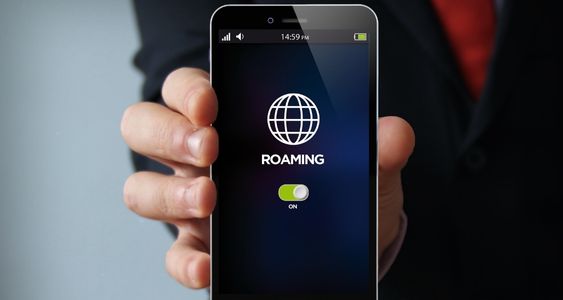As the world becomes increasingly interconnected, mobile communication plays a crucial role in keeping people connected across borders. Roaming, a key enabler of global communication, allows users to access voice, messaging, and data services when they travel outside their home country. While the early days of roaming were marked by high costs, limited coverage, and unreliable connections, recent advancements, particularly with the advent of the IPX (Internet Protocol Exchange) network, have revolutionized the way we experience mobile connectivity. This article explores the evolution of roaming and how IPX technology is enhancing global mobile communication, focusing on the role of the roaming hub in simplifying connectivity.
Table of Contents
The Early Days of Roaming
Roaming, in its earliest form, was a complex and costly service. As mobile networks were initially built on circuit-switched technology, interconnection between different operators and countries required manual agreements and considerable infrastructure investment. When a mobile subscriber traveled abroad, their home network had to establish a connection with a foreign network through complicated bilateral agreements. These agreements often resulted in exorbitant roaming fees, limited data usage, and inconsistent service quality.
Roaming services were initially limited to voice calls and SMS, and users had to deal with frequent call drops, poor voice quality, and limited network availability. With the advent of 2G and 3G networks, mobile data roaming became possible, but it remained expensive and slow, deterring users from utilizing it extensively. It wasn’t until the introduction of IP-based networks that significant improvements in roaming could be realized.

The Rise of IPX: A New Era in Roaming
The introduction of the Internet Protocol Exchange (IPX) marked a turning point in global mobile connectivity. IPX is a private, managed network that allows mobile operators, service providers, and content providers to exchange IP-based data traffic in a secure and efficient manner. Unlike the traditional public internet, which can suffer from latency and security issues, IPX offers a high-quality, end-to-end managed service designed to meet the specific needs of mobile networks.
The primary function of IPX is to facilitate the secure and seamless exchange of voice, data, and multimedia traffic between operators, regardless of their underlying technology. IPX is based on the IP Multimedia Subsystem (IMS) architecture, enabling operators to deliver a wide range of services, including Voice over LTE (VoLTE), video calling, instant messaging, and real-time data services, with enhanced quality and security.
With the rise of LTE and 5G networks, IPX has become even more essential for ensuring seamless global connectivity. IPX ensures that mobile subscribers can enjoy uninterrupted access to services like high-speed data, HD voice, and video calls, no matter where they are in the world. It also provides end-to-end quality of service (QoS), allowing operators to prioritize different types of traffic to ensure optimal performance.
The Role of the Roaming Hub in Simplifying Connectivity
As global mobile traffic increases, managing roaming agreements between hundreds of mobile operators becomes increasingly complex. Traditionally, operators had to establish bilateral roaming agreements with each foreign network they wanted to connect with. This process was not only time-consuming but also expensive, as each agreement required its own legal and technical setup.
The introduction of the roaming hub simplified this process. A roaming hub acts as an intermediary between mobile operators, enabling them to connect to multiple networks through a single agreement. By using a roaming hub, operators can expand their coverage to new markets more quickly and cost-effectively, without the need for numerous individual agreements.
IPX plays a critical role in enhancing the efficiency of roaming hubs. It provides the necessary infrastructure to facilitate secure and efficient data exchange between operators and enables seamless interconnection between different mobile networks. This allows roaming hubs to offer faster, more reliable services, improving the overall user experience for mobile subscribers.
By leveraging IPX, roaming hubs can also offer advanced services such as real-time charging and billing, fraud prevention, and enhanced network security. These capabilities ensure that operators can provide high-quality, secure services to their roaming customers, while also minimizing operational costs.
The Impact of 5G and the Future of Roaming
The deployment of 5G networks is set to further revolutionize global mobile connectivity. With 5G, users can expect significantly faster data speeds, lower latency, and the ability to connect to more devices simultaneously. However, the rollout of 5G also presents new challenges for roaming, as operators need to ensure that their networks can support the increased demand for high-speed data and real-time services.

IPX is expected to play a crucial role in addressing these challenges. The IPX network is designed to support 5G traffic and enable the seamless interconnection of 5G networks across different regions. This will allow mobile users to enjoy the full benefits of 5G, even when they are roaming abroad. In addition, IPX will help operators manage the increasing complexity of 5G services, such as IoT (Internet of Things) and machine-to-machine (M2M) communication, which require low latency and high reliability.
As 5G networks continue to expand, the importance of IPX and roaming hubs in maintaining seamless global connectivity will only increase. By providing a secure, efficient, and scalable platform for the exchange of IP-based traffic, IPX ensures that mobile users can stay connected wherever they go, without compromising on quality or security.
Conclusion
The evolution of roaming has come a long way since its early days, with IPX technology leading the charge in enhancing global mobile connectivity. The roaming hub has simplified the process of interconnecting mobile networks, allowing operators to provide seamless, high-quality roaming services to their customers. As 5G networks become more widespread, the role of IPX in ensuring reliable and efficient global connectivity will become even more critical, shaping the future of roaming and enabling a truly connected world.
See Also: Boost Productivity with Employee Monitoring Software





